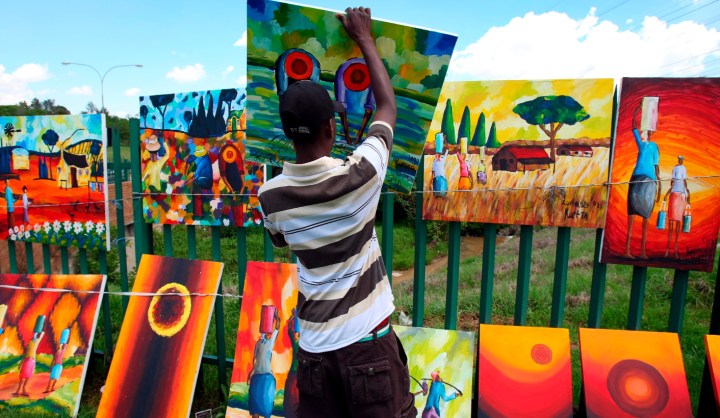Africa, South Africa
Zimbabweans in SA look north – will anything change?

Thousands of Zimbabweans call South Africa home having moved here to seek a better life and to escape economic hardship in the land of their birth. They have been watching developments in Zimbabwe very closely with most expressing mixed emotions over the current situation. By ORATENG LEPODISE.
“As much as a large number of Zimbabweans are celebrating the military takeover right now, I don’t believe it will necessarily change anything within the state of the country and its politics,” said Meli Ncube a Zimbabwean living in South Africa.
On Wednesday the Zimbabwean military took control of the state broadcaster as well as Harare International Airport and placed President Robert Mugabe and First Lady Grace under house arrest but has insisted that this action did not amount to a a coup. High-level negotiations between Mugabe and the generals who seized power – almost certainly on the orders of sacked vice-president Emmerson Mnangagawa – were still under way.
“I think what is happening back home is a wake up call for the ruling party. It’s time for them to step up their game and deal with the leadership issues. You could compare it to what South Africans are facing – a problem of leadership of the ruling party and not the party exactly,” said a Zimbabwean who did not want to be named.
Several people Daily Maverick spoke to declined to be named as they feared that they would be targeted for speaking out.
Ncube, one of the few Zimbabweans who would speak on the record said: “This could potentially worsen the little democracy we had left. No military takeover has ever yielded positive results.”
According to Statistics South Africa, nearly 25,000 Zimbabweans were in possession of temporary residence permits in 2012. The stats body said issues like political unrest, economic instability and environmental degradation in the African region have resulted in the increased numbers of displaced persons heading to South Africa.
In its latest Tourism and Migration Survey released in August 2017, Stats SA recorded that almost 31% of people who had passed through South African ports of entry in August were Zimbabweans.
Most of those who have migrated here have done so to look for a job or for schooling purposes.
“I moved to South Africa in 2012 to attend the University of Pretoria. I am deeply saddened about the situation that is happening back home because I fear for the safety of my family. I do not support what (army general Constantine) Chiwenga is doing. He is bringing unrest to our country,” said Louis Gweru.
“I do not feel like Mugabe should step down, we already know him and are used to his tactics. If he steps down we have no assurance of how the next guy is going to be,” said Gweru.
A woman, who wanted to be identified by a nom de plume, Sarai Chimombe, as she feared being targeted said: “I was excited at first that all of this was happening back home, but after I heard talks that they want Mugabe to step down I changed my thoughts.”
Chimombe said: “I feel as if the generals were up to something because it seems as though they have already selected a government for when Mugabe steps down.
“I think they are avoiding the consequences that might come with their crimes, these people used to be friends but now they are turning against their own friends. I think the best decision for what is happening in the country would be for Mugabe to re-elect a new cabinet,” said Chimombe.
Professor Loren Landau, Director of the Wits African Centre for Migration & Society said: “Any uncertainty about the political situation in Zimbabwe will mean people will need to come to South Africa for economic and possibly physical protection. It is important that we developed policy responses that do not victimize foreigners or turn South Africans against Zimbabweans.”
Craig Smith, founder of Craig Smith & Associates Migration Lawyers, said depending on how the situation unfolded in Zimbabwe, it could either see more Zimbabweans coming into to the country or a Zimbabweans here returning home.
“If it’s non-violent and it presents economic opportunities we might see some Zimbabweans going back home and if it turns violent we might see a new influx of Zimbabweans coming to South Africa,” said Smith, founder of the company of migration lawyers.
Smith said Zimbabweans would only leave South Africa if they were not finding jobs and the transition in Zimbabwe presented economic opportunities. “Right now it is difficult for anyone to predict,” he said. DM
Photo: Zimbabwean refugee artist Lovemore Kupeta hangs his works on a security fence at a busy street intersection in the affluent suburb of Sandton in Johannesburg, South Africa, 02 November 2007. Photo EPA/JON HRUSA

















 Become an Insider
Become an Insider